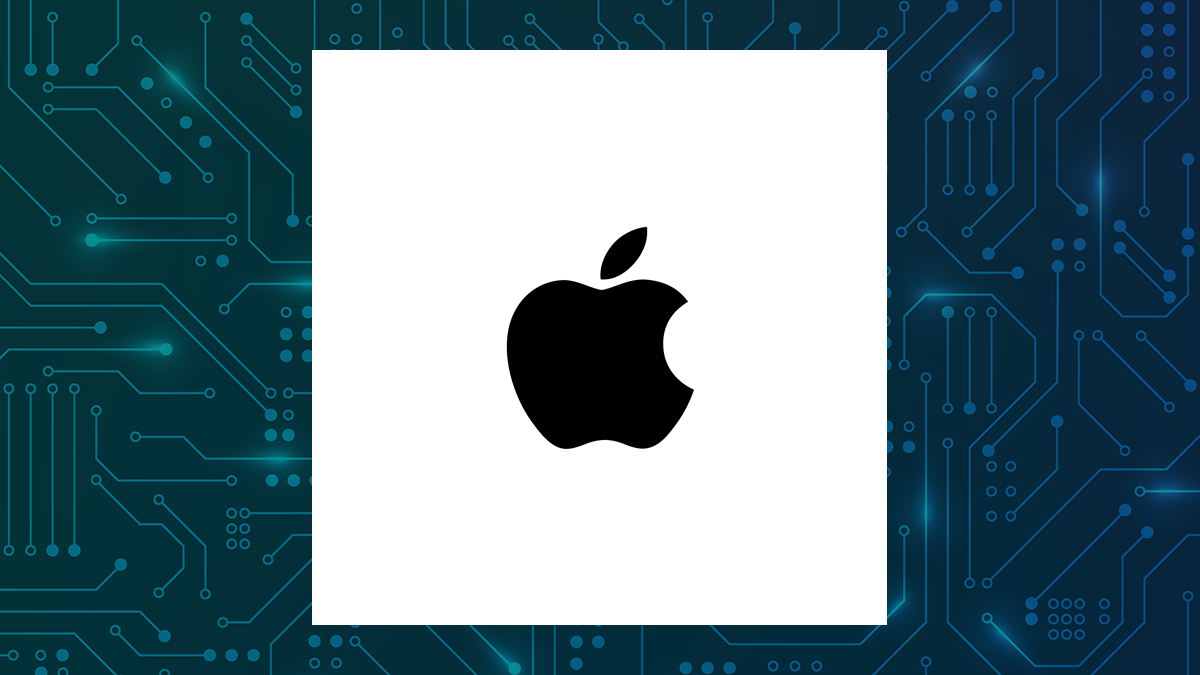Apple, Amazon.com, and Alibaba Group are the three Music stocks to watch today, according to MarketBeat’s stock screener tool. Music stocks refer to stocks of companies that are engaged in the music industry, including record labels, streaming services, instrument manufacturers, and live event production companies. Investors can buy and sell shares of these companies on stock exchanges to potentially profit from the growth and success of the music industry. These companies had the highest dollar trading volume of any Music stocks within the last several days.
Apple (AAPL)
Apple Inc. designs, manufactures, and markets smartphones, personal computers, tablets, wearables, and accessories worldwide. The company offers iPhone, a line of smartphones; Mac, a line of personal computers; iPad, a line of multi-purpose tablets; and wearables, home, and accessories comprising AirPods, Apple TV, Apple Watch, Beats products, and HomePod.
Shares of AAPL stock traded down $1.59 during trading hours on Friday, hitting $236.00. 100,927,959 shares of the company were exchanged, compared to its average volume of 52,177,912. Apple has a 52 week low of $164.07 and a 52 week high of $260.10. The company has a current ratio of 0.87, a quick ratio of 0.83 and a debt-to-equity ratio of 1.51. The business has a 50 day moving average of $241.68 and a two-hundred day moving average of $230.84. The company has a market capitalization of $3.55 trillion, a PE ratio of 38.82, a PEG ratio of 2.39 and a beta of 1.20.
Read Our Latest Research Report on AAPL
Amazon.com (AMZN)
Amazon.com, Inc. engages in the retail sale of consumer products, advertising, and subscriptions service through online and physical stores in North America and internationally. The company operates through three segments: North America, International, and Amazon Web Services (AWS). It also manufactures and sells electronic devices, including Kindle, Fire tablets, Fire TVs, Echo, Ring, Blink, and eero; and develops and produces media content.
Shares of AMZN traded up $3.04 during midday trading on Friday, hitting $237.68. The stock had a trading volume of 36,098,305 shares, compared to its average volume of 29,222,300. The firm has a market cap of $2.50 trillion, a price-to-earnings ratio of 50.90, a price-to-earnings-growth ratio of 1.35 and a beta of 1.14. The company has a 50 day simple moving average of $223.83 and a two-hundred day simple moving average of $198.91. Amazon.com has a twelve month low of $151.61 and a twelve month high of $241.77. The company has a debt-to-equity ratio of 0.21, a current ratio of 1.09 and a quick ratio of 0.87.
Read Our Latest Research Report on AMZN
Alibaba Group (BABA)
Alibaba Group Holding Limited, through its subsidiaries, provides technology infrastructure and marketing reach to help merchants, brands, retailers, and other businesses to engage with their users and customers in the People's Republic of China and internationally. The company operates through seven segments: China Commerce, International Commerce, Local Consumer Services, Cainiao, Cloud, Digital Media and Entertainment, and Innovation Initiatives and Others.
Shares of NYSE:BABA traded down $4.09 during mid-day trading on Friday, reaching $98.65. 36,378,141 shares of the stock were exchanged, compared to its average volume of 16,013,848. The company has a market cap of $234.66 billion, a P/E ratio of 20.01, a P/E/G ratio of 0.41 and a beta of 0.30. The stock’s 50 day simple moving average is $86.58 and its 200-day simple moving average is $88.83. The company has a quick ratio of 1.37, a current ratio of 1.37 and a debt-to-equity ratio of 0.16. Alibaba Group has a one year low of $68.36 and a one year high of $117.82.
Read Our Latest Research Report on BABA
Recommended Stories
- MarketBeat’s Top Five Stocks to Own in February 2025
- 3 Stocks to Gain From Trump’s Return-to-Office Mandate
- Crane Stock Soars, But the Best Could Be Yet to Come: Here’s Why
- ServiceNow Stock Slips, But AI Expansion Signals Long-Term Gains
- Microsoft and Meta’s AI Investment Plans Are Full Steam Ahead
- Beyond Self-Driving Cars: Factory Automation Takes Center Stage

